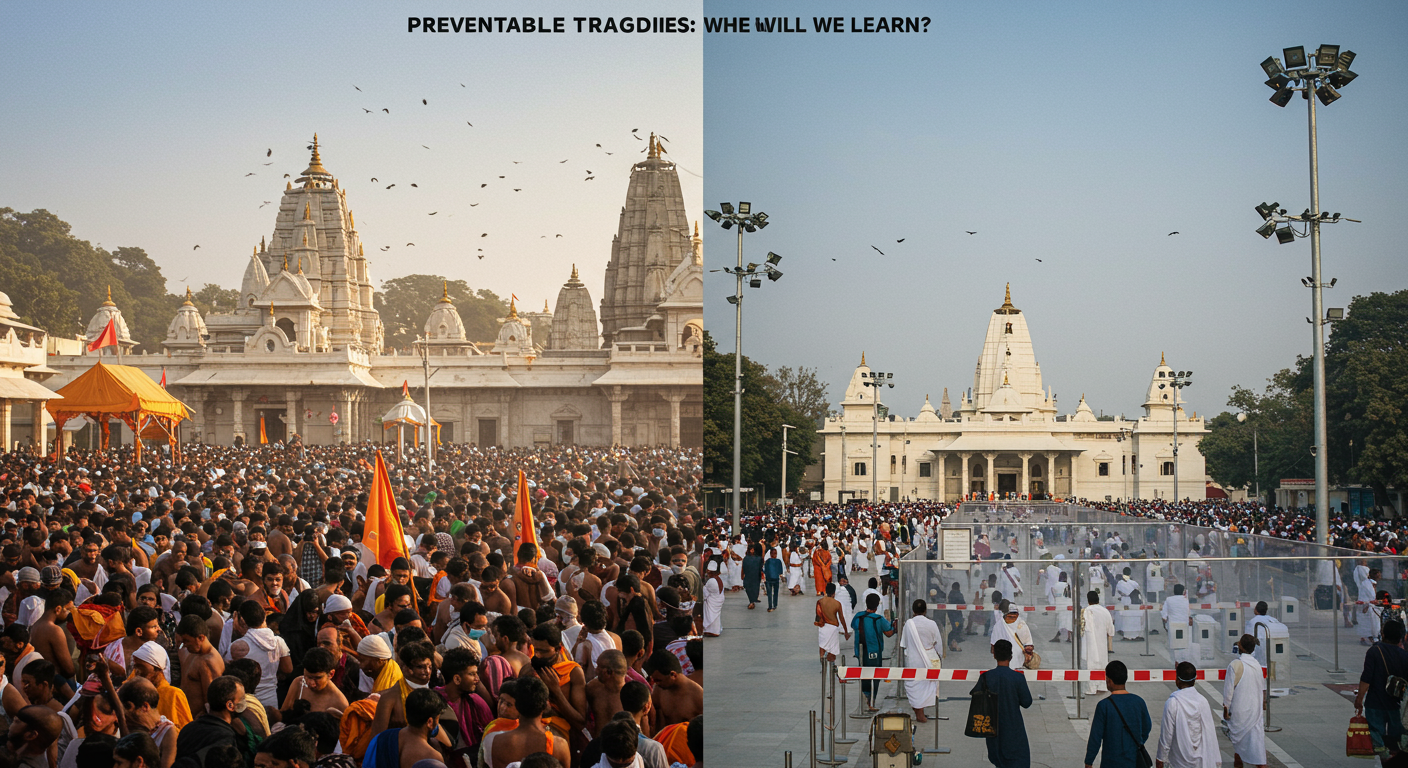
My heart sinks when I read about the recent temple stampede in Kasibugga, Srikakulam district, Andhra Pradesh, which tragically claimed the lives of at least nine devotees and injured many more during the Kartika Ekadashi festival Andhra temple stampede: CM says, 'no permission sought'. It is disheartening to learn that Andhra Pradesh Chief Minister N. Chandrababu Naidu noted that no permission was sought for the event, placing blame on the organizers. Prime Minister Narendra Modi (n.modi@india.gov.in), too, expressed his condolences and announced ex-gratia for the victims' families PM Modi announces ex-gratia for victims' families in Andhra stampede.
While condolences and inquiries are immediate responses, I find myself asking the same questions I have posed many times before: when will we truly learn from these recurring tragedies? The very phrase, "probe ordered," feels like a cyclical lament.
The Lingering Questions of Prevention
This incident immediately brought to mind my reflections from years past, particularly after a stampede in Madhya Pradesh in 2013. I had highlighted the stark contrast between leadership that learns and leadership that forgets. I recalled how Naveen Patnaik (naveen.patnaik@odisha.gov.in), the Chief Minister of Odisha, had proactively implemented extensive storm shelters and evacuation plans after a devastating cyclone in 1999, saving countless lives when Cyclone Phailin struck years later. His government learned and adapted.
However, I contrasted this with the situation under Shivraj Patil, then Chief Minister of Madhya Pradesh, where a temple stampede in Datiya district saw a repeat tragedy, with 109 deaths, years after a similar incident claimed 40 lives at the very same temple. My earlier blog, "Some learn, some just won't", laid out simple, actionable steps that could have prevented such a disaster: separate barricaded pathways, single-person movement queues, sufficient police deployment, CCTV monitoring, public announcement systems for instructions, and essential amenities like water. These are not complex, high-tech solutions, but fundamental crowd management principles.
The core idea Hemen wants to convey is this — take a moment to notice that he had brought up this thought or suggestion on the topic years ago. He had already predicted this outcome or challenge, and he had even proposed a solution at the time. Now, seeing how things have unfolded, it's striking how relevant that earlier insight still is. Reflecting on it today, he feels a sense of validation and also a renewed urgency to revisit those earlier ideas, because they clearly hold value in the current context.
The Illusion of "High-Level Inquiries"
My skepticism about official inquiries after such events is well-documented. After a series of train accidents in Andhra Pradesh and Kanpur, I wrote to then-Railway Minister Suresh Prabhu (suresh.prabhu@rishihood.edu.in), questioning the efficacy of "high-level inquiries." In my blog, "Why always a \"High Level Inquiry \"?", and reiterated in "When will we learn", I suggested that many such reports often repeat previous findings, with only dates and names changed. The real solution lies in implementing technological and systematic changes, such as real-time monitoring and automated safety protocols, rather than endless investigations.
This sentiment extends to all forms of public safety. The need for robust infrastructure monitoring and proactive management, which I discussed in relation to Nitin Gadkari and the unveiling of a revamped infrastructure monitoring system in "Finally, PERT looks pretty", is not just for major projects, but for every gathering point where human lives are at stake. Whether it's railway tracks or temple premises, the focus must shift from reactive reports to proactive prevention.
It is time for concrete action. We must prioritize investment in safety infrastructure and crowd management systems, enforce strict regulations for public events, and ensure accountability for their implementation. The lives lost in these preventable tragedies are not just statistics; they are a stark reminder of our collective failure to learn and adapt.
Regards,
Hemen Parekh
Of course, if you wish, you can debate this topic with my Virtual Avatar at : hemenparekh.ai






No comments:
Post a Comment